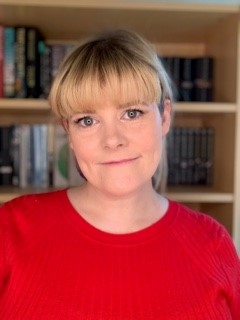Posted By: MMHA
2 minute read

To anyone suffering alone, I open the door and welcome you to our group. You need never be alone.
Following the birth of my daughter, I had frequent and often crippling panic attacks. They would hit me out of the blue, lead to shortness of breath and I would think, “Oh my God, this is it, I’m dying!”
To find a solution, I spoke to my doctor, learned CBT techniques and desperately researched all aspects of my physiology, from nutrient deficiency to thyroid problems. But deep down I knew the answer. I needed to speak to others who had been where I was. People who could guide me out of this darkness.
Without a doubt, my family and friends had been incredibly supportive. But unless you’ve been there yourself, it’s a very difficult thing to understand and help someone with postnatal depression, anxiety, PTSD, psychosis. They’re all illnesses very specific to each person and their circumstances.
I started looking for support groups for women going through a similar experience. There had to be someone out there just like me, right? Well, unfortunately, my search showed there wasn’t. There just weren’t any groups, websites or local services that I felt could offer me the peer support I needed.
As a result, I set up The Parent Rooms (then known as We are PANGS) in Northern Ireland on Facebook and shared it around some of the parenting groups I was part of. Soon there were five members, then 19, then 40, then 98. The numbers kept rising and currently, we’re up to nearly 700 members. We are now a registered charity and support families in the community through peer support and wellbeing programs.
Now, when I read through our members’ posts, I’m so proud of the warmth and sisterhood that exists there, because it genuinely has been life-saving at times. Our members are also coming together to raise awareness of the mental health issues pregnant and new mums face. And we’re campaigning with friends and partners to fight for better services for parents. The future feels so much brighter now.
The MMHA commissioned Centre for Mental Health to explore just how much of a challenge the pandemic has placed on perinatal mental health and the services that support women and families. Michelle responded to the report findings by saying:
Isolation and loneliness are two of the biggest factors affecting mental health and we are now in a perfect storm of increasing pressures, reduced social contact and ever-growing feelings of loneliness. Our charity, The Parent Rooms, has seen a dramatic increase in the number of referrals to our peer support service and we are fast reaching capacity.
We need to invest heavily in mental health services, particularly those at grassroots level who are supporting parents through this difficult time to ensure that they have immediate access to mental health support, particularly as our health service continues to struggle. The effects of mental illness on the whole family is well documented which is why it’s more important than ever that we protect future generations by putting in place robust support for parents now. The help can’t come quickly enough.